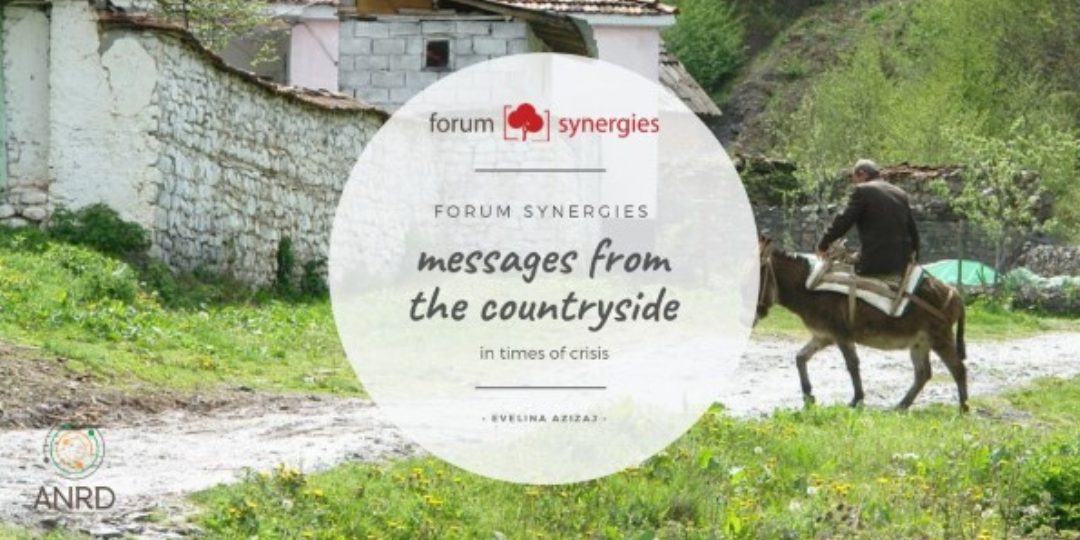(Rural) social distancing
Evelina Azizaj, coordinator of the Albanian Network for Rural Development, 29.3.2020 (Originally published at the Forum Synergies)
During these work-from-home days I am constantly thinking about the activities we would organize if this global pandemic had not happened: the rural March, the four regional rural forums and the second Albanian rural parliament in early April. The second parliament would coincide with the farming season. At the moment all this is unrealizable. We are in an unknown situation and it is not known how long it will take.
The theme of these days is social distancing. Distancing and rural Parliament do not coincide. The Parliament intends to bring people from rural areas of Albania, whether farmers, entrepreneurs, or municipal representatives, young or rural women etc. together, to meet and discuss the pressing needs, priorities and interests of the rural communities, generate ideas and recommendations about improvement of rural livelihood, national rural policies, and options for rural youth and so on. Also, parliament aims to promote self-help of rural communities throughout Albania through broader solidarity. And yet, solidarity against COVID-19 is already required. The uncertainty of this unusual situation blunts the planning skills, despite good will and the belief that this will pass quickly. The first thought about rural life is that if at this time we must maintain social distancing, social isolation is a state of everyday life for the rural population. Once all of this is gone, we will probably be more empathetic to better understand the social isolation of many rural communities and the effect it has on their lives. In difficult times like this, with highly restrictive measures, limited basic services, the isolation of rural areas deepens. The greatest difficulties in such times are experienced by the most vulnerable groups of society. And rural residents are one of them. Not least farmers and rural entrepreneurs. However, the halt from the usual rush makes us aware and reflect on such situations! Where are we, how prepared and innovative are we to operate under such circumstances, hampered by various natural phenomena or unpredictable disasters? Unfortunately, we find ourselves unprepared, with no ideas, and even more with no alternatives for tough days like these. As this farming season ends, the Second Rural Parliament is postponed to be organized later, when the situation allows for movement and interaction.
Now solidarity is needed! To help and to be helped. But who helps who – the urban (central government, municipalities) helps the rural (agriculture, farming, agri-tourism, etc.) or vice versa! In situations of extraordinary circumstances, each without the other can hardly function and exist, so assistance must be reciprocal. Now the fieldwork is done via the internet, information gathering and communication is done electronically. Only this connection and communication today can help to “realize” an imaginary Parliament, through which the current situation in rural areas would be recognized. Such recognition of the reality we are living in would help all stakeholders, from government institutions to producers and rural residents, farmers and product groups, who need to be helped and supported in these situations.
How can we connect? How can we foster a sense of solidarity and self-help between the rural residents and other rural stakeholders? Can we challenge rural distancing? How? If you have ideas, reflections or would like to share a personal experience on this situation in rural areas, write to us at [email protected]. Your experiences would help us understand the impact of this situation on rural areas.
After that the Rural Parliament will come soon … can today lead us to the discussions and conclusions we will get tomorrow.

